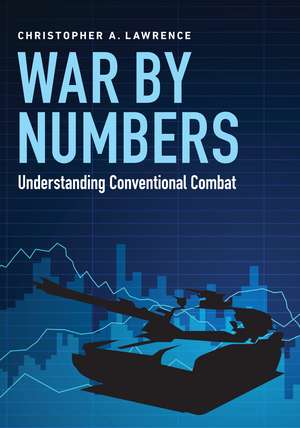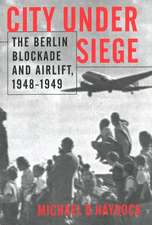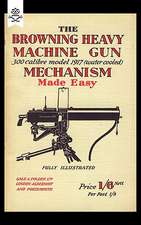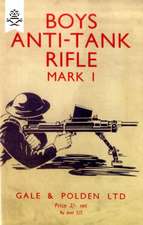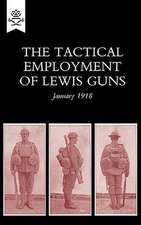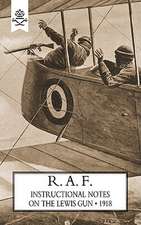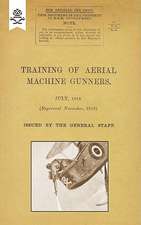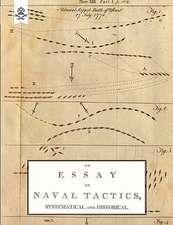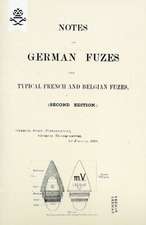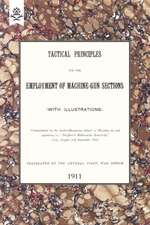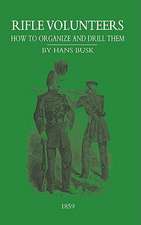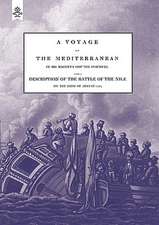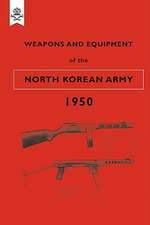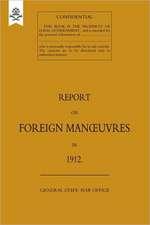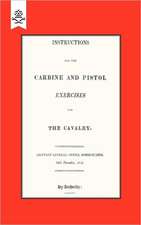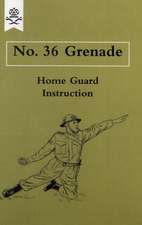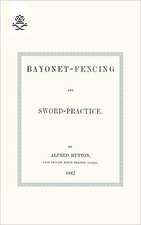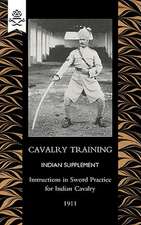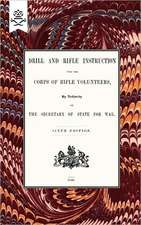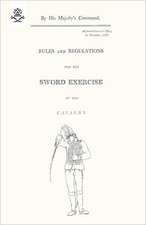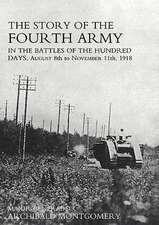War by Numbers: Understanding Conventional Combat
Autor Christopher A. Lawrenceen Limba Engleză Paperback – 31 iul 2017
Using vast data sets, Lawrence examines force ratios, the human factor in case studies from World War II and beyond, the combat value of superior situational awareness, and the effects of dispersion, among other elements. Lawrence challenges existing interpretations of conventional warfare and shows how such combat should be conducted in the future, simultaneously broadening our understanding of what it means to fight wars by the numbers.
Preț: 234.91 lei
Nou
Puncte Express: 352
Preț estimativ în valută:
44.95€ • 48.07$ • 37.48£
44.95€ • 48.07$ • 37.48£
Carte disponibilă
Livrare economică 27 martie-10 aprilie
Preluare comenzi: 021 569.72.76
Specificații
ISBN-13: 9781612348865
ISBN-10: 1612348866
Pagini: 390
Ilustrații: 218 tables, 1 chart, 49 graphs
Dimensiuni: 178 x 254 x 27 mm
Greutate: 0.68 kg
Editura: Potomac Books Inc
Colecția Potomac Books
Locul publicării:United States
ISBN-10: 1612348866
Pagini: 390
Ilustrații: 218 tables, 1 chart, 49 graphs
Dimensiuni: 178 x 254 x 27 mm
Greutate: 0.68 kg
Editura: Potomac Books Inc
Colecția Potomac Books
Locul publicării:United States
Notă biografică
Christopher A. Lawrence is a professional historian and military analyst and has participated in studies for the U.S. Army, the U.S. Department of Defense, the Joint Chiefs of Staff, and the U.S. Air Force. He is the executive director and president of the Dupuy Institute, a nonprofit organization dedicated to scholarly research and objective analysis of historical data related to armed conflict. Lawrence is the author of Kursk: The Battle of Prokhorovka and America’s Modern Wars: Understanding Iraq, Afghanistan, and Vietnam.
Cuprins
Preface
Acknowledgments
Abbreviations
1. Understanding War
2. Force Ratios
3. Attacker versus Defender
4. Human Factors
5. Measuring Human Factors in Combat: Italy 1943–1944
6. Measuring Human Factors in Combat: Ardennes and Kursk, July 1943
7. Measuring Human Factors in Combat: Modern Wars
8. Outcome of Battles
9. Exchange Ratios
10. The Combat Value of Superior Situational Awareness
11. The Combat Value of Surprise
12. The Nature of Lower Levels of Combat
13. The Effects of Dispersion on Combat
14. Advance Rates
15. Casualties
16. Urban Legends
17. The Use of Case Studies
18. Modeling Warfare
19. Validation of the TNDM
20. Conclusions
Appendix 1: Dupuy’s Timeless Verities of Combat
Appendix 2: Dupuy’s Combat Advance Rate Verities
Appendix 3: Dupuy’s Combat Attrition Verities
Notes
Bibliography
Acknowledgments
Abbreviations
1. Understanding War
2. Force Ratios
3. Attacker versus Defender
4. Human Factors
5. Measuring Human Factors in Combat: Italy 1943–1944
6. Measuring Human Factors in Combat: Ardennes and Kursk, July 1943
7. Measuring Human Factors in Combat: Modern Wars
8. Outcome of Battles
9. Exchange Ratios
10. The Combat Value of Superior Situational Awareness
11. The Combat Value of Surprise
12. The Nature of Lower Levels of Combat
13. The Effects of Dispersion on Combat
14. Advance Rates
15. Casualties
16. Urban Legends
17. The Use of Case Studies
18. Modeling Warfare
19. Validation of the TNDM
20. Conclusions
Appendix 1: Dupuy’s Timeless Verities of Combat
Appendix 2: Dupuy’s Combat Advance Rate Verities
Appendix 3: Dupuy’s Combat Attrition Verities
Notes
Bibliography
Recenzii
"There are "lies, damned lies, and statistics," according to the former British Prime Minister Benjamin Disraeli. Christopher A. Lawrence's War by Numbers continues that truth with an analysis of how the Dupuy Institute's selectively collected database of military battles conforms with commonly held beliefs about warfare, and examines how statistics do or don't support what might or might not be lies."—Ching Wah Chin, Strategy Page
“War by Numbers takes the study of military history out of the realm of storytelling and simplistic interpretation into a realm of systematic and impartial analysis of available recorded data. This is an essential book for the theorist, the analyst, the war planner, and the war fighter.”—Maj. Gen. Nicholas Krawciw, U.S. Army (Ret.)
